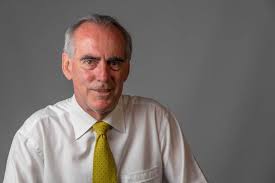Wasting money or avoiding decisions?
COUNCIL are proposing to spend $9,000 on a phone survey to ask 400 residents if they want a referendum on how the Mayor is elected, when the actual cost of a referendum of all residents is only $12,000 and would finalise the matter.
The proposal is being put forward at tonight’s Upper Hunter Shire Council ordinary meeting, which commences at 5pm and is open to the public.
On January 29, 2013 a petition was presented to Council requesting “people pick the Mayor”, rather than the Councillors picking the Mayor.
In the petition 425 residents wanted the directly elected Mayor and only 13 who did not.
Council deferred a decision pending the final report from the Local Government Reviews.
In all public drafts and the final report of the Local Government Review on page 65 it states:
The Panel is strongly of the view that councillors should not have a power of veto over a change to popular election….. and that a petition signed by a set minimum number of voters (say, 250 or 10% of the total, whichever is the lesser) should require a council to hold a referendum on changing the method of election.
Despite receiving a petition of more than 250 residents and the Review stating Council should be required to hold the referendum, Council are taking more time and considering spending more money on the issue.
The question being considered for the phone survey is verbose and has an emphasis on the cost of the referendum which is $12,000; however it does not provide balanced context by including the overall cost of the general election which is $120,000 or the additional optional cost of their phone survey which is $9,000.
scone.com.au asked Council on Friday who had written the question and if any money had been spent so far on developing the survey, but they did not want to respond to those questions.
VOTE IN OUR POLL: Should the Council spend $9,000 on a phone survey to decide if they hold a referendum for a directly elected Mayor which costs $12,000?
Since the local Council was unwilling to answer questions on the matter, we interviewed independent state Member of Parliament for Lake Macquarie Greg Piper, who has also served on Council for many years, has never belonged to a political party and has experience with both systems of Mayoral election for his perspective on the matter.
“In my experience of a population electing a popularly elected Mayor they do tend to get it right and they’re looking for leadership the community aren’t interested in the political makeup of a Council, you know the left or right, the Nationals or Liberals, or Labor or whatever, people are generally looking for a person that can display the type of leadership they need,” said Mr Piper.
“In a council where the Mayor is elected by the Councillors, the jockeying the underhanded politics, the Machavelian politics that goes on, with the Mayor needing to find favour with the majority and trade issues to get what they want, it’s quite a dysfunctional way of doing things when you are talking about community leadership,” he said.
“It plays to the hands of the political parties and people who like the ‘politics’, they like the game of politics, they like control and they don’t do that by appealing to the community, they do it through other mechanisms behind the scenes.
“A popularly elected Mayor takes that largely away, the people will weight and measure the candidate and that’s most important,” Greg Piper said.
During the recent controversial decision to sell a Council owned building without putting it on the public record, the current Mayor Wayne Bedggood argued on ABC Radio that since the Councillors were all elected by the people, they represented the people and therefore did not need to consult the people and could make that decision without consultation or prior public knowledge.
Similar arguments have been used to say that Councillors are in the best position to choose the Mayor, not the community who don’t know them as well, which Greg says is disrespectful to the community they represent.
“Absolutely not, some of those Councillors who are elected under our system of proportional representation there’s always a few at the end who are barely elected, they only just get there and I’m not disrespecting that position…but that doesn’t mean the community have shown support for that particular person,” said Greg Piper.
View the number of votes of the current Councillors here.
“I just don’t understand why anyone would argue against giving the community the respect to allow them to say who they to lead their community; anything else is just petty local party politics,” he said.
“I know everything is proportional to your overall budget, but if they are spending $9,000 on a phone poll then I would think that the $12,000 budget for a referendum is relatively modest.
“But it’s up to them to make the decision and if the community are informed and they feel it should be a popularly elected Mayor, well maybe they’ll seek their vengeance on election day for denying them their opportunity and that’s exactly what they’re doing they are denying their electors their ability to cast their vote on them, on their leader,” Greg Piper said.
On page 43 of the background document for Council’s meeting highlights that only 35 NSW Councils out of 152 have popularly elected Mayors.
However, it does not include the Local Government Reviews’ broader context that:
- Queensland and Tasmania have popularly elected Mayors;
- South Australia has 70% popularly elected Mayors and
- Only a quarter of NSW Council have popularly elected Mayors, because the default position is that Councillors elect the Mayor, and
- They recommended all metropolitan councils in NSW change to popularly elected Mayors.
 scone.com.au
scone.com.au